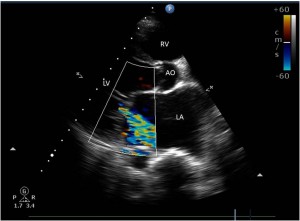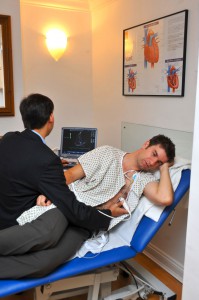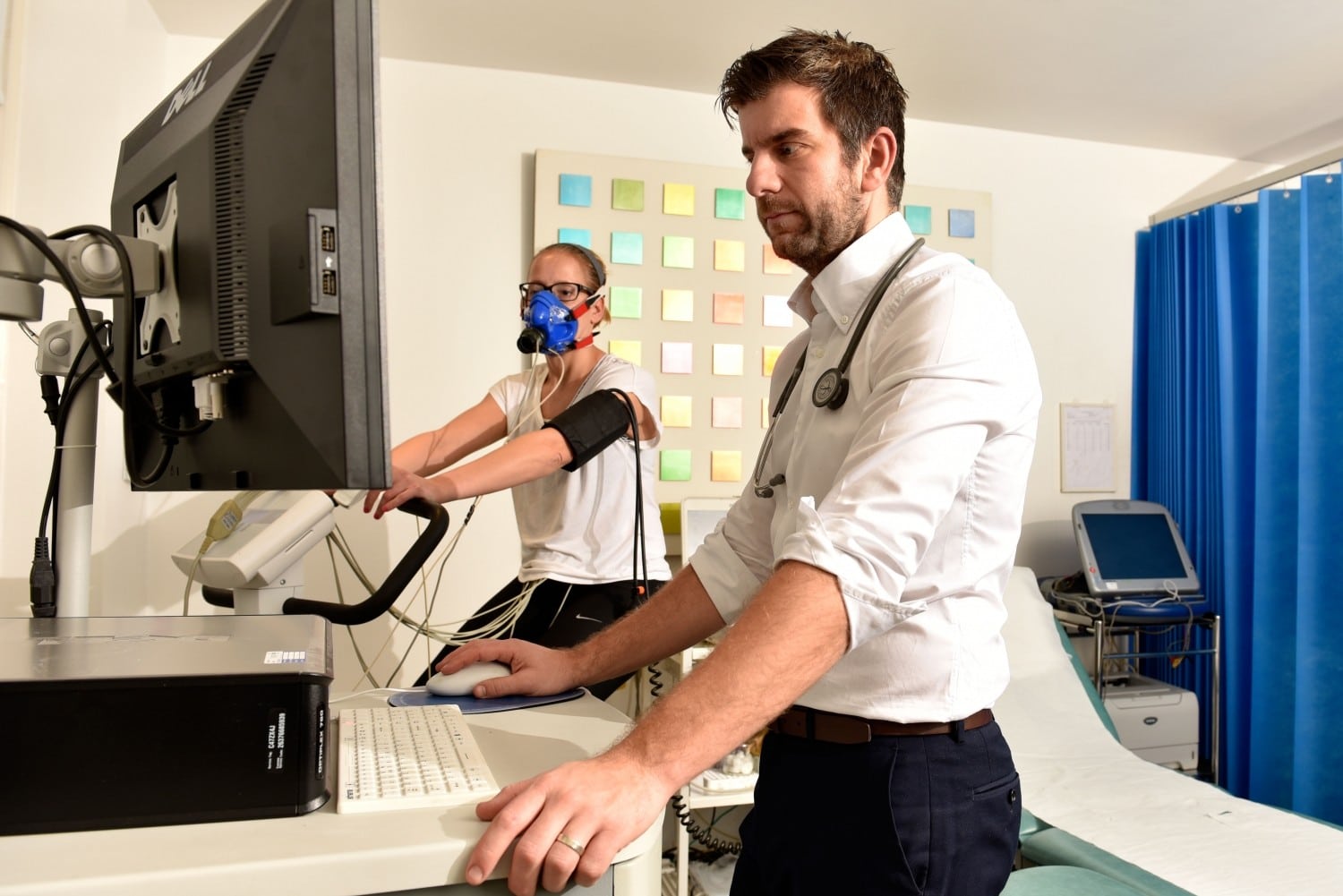Find out what an echocardiography scan is, why you need one, what the procedure involves, and how you can get treatment quickly whilst feeling at ease. You’ll learn everything you need to know about this non-invasive procedure and our patient-centred approach, so we can get started with your personalised treatment plan. Choose cardiologists that care – let’s improve your quality of life.
What is an echocardiography?
A transthoracic echocardiography scan (more commonly referred to as an echo heart test) is the most common type of echocardiogram. It is an ultrasound test which allows the cardiologist to see accurate pictures of the heart muscles, its pumping chambers and the valves. Our cardiologists use this test to determine how well your heart is functioning, how well it’s pumping blood and if there are any cardiac-related symptoms which need further investigation.

Parasternal short axis with mitral regurgitation.
Who needs an echocardiography?
You’ll need an echocardiography if you’re suffering from the following symptoms.
- Breathlessness
- Edema (leg swelling)
- Exercise intolerance
- Chest pain
These could be signs of heart failure or other heart diseases, so it’s best to get your symptoms investigated.

.
What happens during an echo heart scan?
The whole procedure only takes around 30 minutes. You can expect the following:
- First, you will be given a gown and asked to undress to the waist.
- Stickers or electrodes will then be attached across your chest and wires or leads will be attached to the electrodes.
- The physiologist will then place a probe on your chest in various positions to acquire images of the heart. Sometimes this can be a little uncomfortable but it will not be painful. We’ll be here to help you feel relaxed throughout.
- The physiologist will also use a doppler to look at the flow of blood between chambers and you may hear doppler sounds from the echo machine as your heart beats. More specialised analyses can be done by looking at particular areas of the heart muscle, its movement and its relaxation.
How will I get the results?
After your echo heart scan, the images will be transferred to our electronic archive and our consultants will write up your report. We’ll then discuss the results and go through the next steps with you. If you have any questions, we’re more than happy to answer them so you feel at ease.
What will the procedure show?
Our cardiologist specialists will get access to the following information to help form your diagnosis:
- Any changes to the size of your heart
- Pumping strength
- Heart muscle damage
- Valve issues that are restricting your blood flow
- Heart defects
What are the next steps?
If you’re diagnosed with a cardiac condition, we’ll create a personalised treatment plan to either cure your condition or provide relief to make the symptoms manageable – depending on the diagnosis.
How do I book the test?
Either give us a call, e-mail or fill out our simple contact form to arrange your consultation with London’s top cardiologist specialists. You’ll soon have the answers you need so you can start enjoying life again.
What other types of echocardiograms are there?
- Transesophageal echocardiogram. This is typically used when a standard echocardiogram fails to produce clear images.
- Bubble contrast echocardiogram. An investigation to look for a hole in your heart (Atrial Septal Defect or a Patent Foramen Ovale).
- Dobutamine stress echocardiogram. This technique produces images of your heart after it’s stressed by exercise and is then contrasted with your standard echocardiogram results.
Pricing
Insurance
Our echocardiograms are covered by most private medical insurance policies, but please contact your insurance company prior to your appointment to obtain your pre-authorisation code to speed things up.
Self-funding
Our price list is available on request and is on display in our waiting area. For an estimation of costs please get in touch.
Why choose London Cardiovascular Clinic?
- We offer a patient-centred approach, so you’ll feel looked after and have all your questions answered
- Choose from our flexible appointment times and get seen at your convenience
- Personalised treatment plans
- Get consultancy & treatment from London’s top cardiologists – each with their own special interests
- You’ll experience a much more welcoming and relaxing experience at our private clinic than you would elsewhere
- Video resources to help you further understand your condition and the procedures involved



